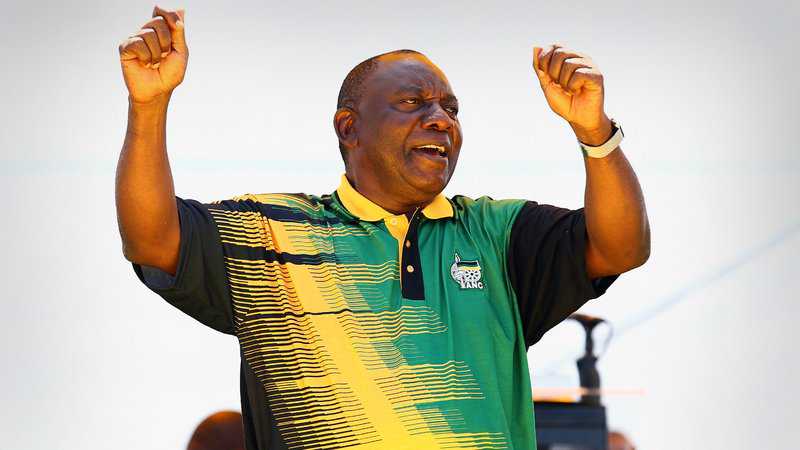ANC leader: We will crack down on corruption

The new leader of South Africa’s ruling party vowed Saturday to crack down on the corruption that has weakened the African National Congress in a new push to end inequities that haunt the nation more than 20 years after the end of white minority rule.
“Billions of rands have been illegally diverted to individuals,” Cyril Ramaphosa said in a speech to celebrate the party’s 106th anniversary.
It was Ramaphosa’s first major public address since he was elected to lead Africa’s oldest liberation party in December, replacing scandal-prone President Jacob Zuma as party leader. He likely will be elected the next president in 2019.
Public frustration over corruption allegations against Zuma deeply split the ANC in recent months, and Ramaphosa has been pressured by opposition parties and some ANC members to recall Zuma as president. Zuma was booed upon his arrival at Saturday’s event.
Ramaphosa instead is emphasizing the need to unify the party.
The ANC “has become deeply divided through factionalism, patronage, corruption and competition for resources,” he said. “At the center of our efforts this year is unity.”
On the eve of a high-level ruling party meeting this week that had threatened to discuss his fate, Zuma acknowledged the pressure, announcing Tuesday he was appointing a commission of inquiry to look into the corruption allegations. “This matter cannot wait any longer,” he said.
Ramaphosa on Saturday thanked Zuma for that decision.
“Corruption in state-owned enterprises and other public institutions has undermined our government’s programs to address poverty and unemployment,” Ramaphosa, also the country’s deputy president, said. “We are going to confront corruption and state capture in all its forms.”
The ANC has been in power since the country’s first democratic elections in 1994, but voters have grown disillusioned with the party of Nelson Mandela under Zuma’s tenure. South Africa’s economy briefly dipped into recession last year and unemployment hovers close to 30 percent.
In 2016 municipal elections, the ANC lost control of the commercial hub of Johannesburg and the capital, Pretoria, for the first time. Observers have warned that if support continues to dwindle, the party faces the possibility of losing its national majority in 2019 and having to govern as part of a coalition.
At the party conference in December, Zuma acknowledged serious challenges but pushed back against allegations of graft, asserting that “theft and corruption” in the private sector is just as bad as in South Africa’s government and that “being black and successful is being made synonymous to being corrupt.”
Ramaphosa now faces the task of reviving confidence in both the government and the economy.
